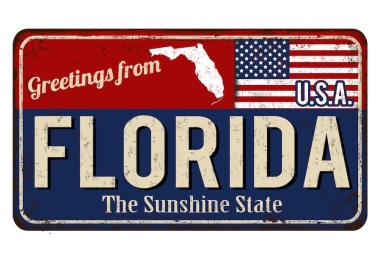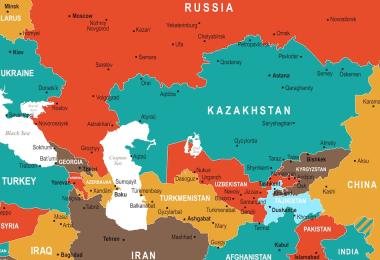Sweden’s sommeliers have a global reputation for their skill and knowledge, for which the long-established Systembolaget monopoly certainly deserves much of the credit. Four decades ago, at a time when Swedish consumers preferred stronger beverages, the monopoly offered them wines that – in quality terms – were models of their appellation, style or grape variety. One could say that the monopoly educated the Swedes to appreciate good wines. Today, as in other mature import markets, most of the wines on the shelves are commercial, and the task of teaching and inspiring consumers has been passed to the sommeliers.
The first sommeliers to graduate from the Swedish Sommelier Association did so in 1980. Eight years later, the Association joined the Association de la Sommellerie Internationale (ASI), and now, the Swedish Sommelier Association boasts 250 members.
Today, wine knowledge is widespread in Sweden, as importers now offer a wide range of exclusive wines, and some restaurateurs have even decided to start their own import businesses. It is common for restaurants to have their own sommeliers, and Swedish sommeliers have done remarkably well at international competitions. The most famous of these are the two World Champion sommeliers, Andreas Larsson and Arvid Rosengren.
Arvid Rosengren, Charlie Bird, New York
After six years of study, practise and travel, Rosengren accomplished the goal of becoming Best Sommelier in the World in Mendoza, Argentina, in April 2016, and effectively became something of a superstar in the Swedish food and beverage scene.
Rosengren, who was born in the south of Sweden, began his professional career in Nanotechnology Engineering before realising that this would mean spending his life in front of a computer. So he spent two years at Grythyttan School of Hospitality & Culinary Arts and worked in Stockholm at Brasserie Le Rouge, in Copenhagen at MASH and Umami, and at Hotel du Vin in Birmingham, before becoming wine director at Charlie Bird in New York in 2015. Together with two friends, he also runs King Street Sommeliers, a consultancy focusing on cellar management for individuals and wine-list creation for restaurants. When asked to summarise his success, Rosengren simply says: “Always enjoy your work in the restaurant and focus on the guest before your ego.”
Bodil Andersson, Långbro Värdshus, Stockholm
For the last 11 years, Andersson has worked in the southern suburbs of Stockholm at Långbro Värdshus, a top-class venue. One of the first Swedes to study gastronomy at the Grythyttan School, she worked at Grythyttans Gästgivaregård from 1989 to 1993. The wine list there, she says, was “vast” and she had to learn “what wine was all about”. She soon moved to Stockholm to work for Operakällarens Matsal as head waiter and became a consultant for the Stockholm Hotel and Restaurant school, before ending up at Villa Källhagens with Chef Frederik Eriksson, one of Sweden’s most celebrated cooks.
Andersson, who also works as wine educator at the Restaurangakademien school, loves to introduce guests to wines they normally would not choose. “I usually buy smaller batches of wines and change them often,” she says. Her knowledge of and passion for Aquavit has earned her the nickname the “schnapps sommelier”.
Carl Frosterud, Operakällarens Matsal, Stockholm
After a decade at the one-star Operakällarens Matsal restaurant, Carl Frosterud is as well- known for his work at the Swedish Spirit Academy as for his skills as a sommelier. After studying food service in Linköping, in the middle of Sweden, he moved to Stockholm, where he worked at top restaurants such as Berns and Restaurant J. There he was inspired to take a sommelier exam in 2003. Three years later, he moved to Operakällarens Matsal, where the cellar holds 2,500, mostly French, wines. As one of Sweden’s most influential importers says, “Frosterud can create a unique atmosphere, with world-class knowledge and service.”
David Svensson, Djuret, Stockholm
One of the stars of the gastronomic revolution of the Old Town of Stockholm, Svensson, still in his mid-30s, discovered a passion for wine while working as a chef at Klamedan Food & Wine in the south of Sweden. He now views being a sommelier as the only job he could imagine doing. Working in the Old Town of Stockholm at one of Sweden’s most fashionable restaurants, he believes in food-and-wine-matching ‘packages’, and offers his customers two choices: a standard and a deluxe package. The latter consist of mature wines from top producers and/or vintages. In his three years at Djuret, Svenssson has overseen a cellar that has grown in depth but also in variety. Most of the 2,500 wines are classics and include his pride and joy — a vertical of Mouton Rothschild from 1945 to the most recent vintages.
Countries like Austria and the US are also well represented. Svensson has also spent time at the one-star restaurants F12 and Esperanto, and at hip places like Råkultur and Pubologi.
Erik Forssell, AG, Stockholm
With a father who was a famous chef and a mother who was a sommelier, Forssell began by studying mathematics and computer science. “I was afraid my father’s shoes would be too big to fill,” he says. After a short stint of bartending in Stockholm, he travelled to the south of France to work with Enrico Bernardo, the 2004 world champion sommelier, at his newly opened restaurant La Villa Madie in Cassis.
He later followed Bernardo to Il Vino at the exclusive ski resort of Courchevel.
Back in Sweden, after a spell at the one-star Matbaren restaurant, Forssell helped to open Gastrologik, which won a Michelin star in its first year. Nowadays he is in charge of the wine cellar at the meat-focused restaurant AG. The predominantly red list has around 1,000 wines, mostly from France but also Italy, Spain and the US. “We want our cellar to have depth and width within each specific category,” says Forssell, whose long-term ambition is to sell mature wines. “For that you need both the patience to let them mature and the knowledge of which wines to invest in.”
Fredrik Lindfors, Grand Hôtel, Stockholm
The wine cellar of Stockholm’s illustrious Grand Hôtel holds some 18,000 bottles, from both classic European regions and the New World. Many are precious and rare, such as the examples from 1874, the year the hotel opened. When Lindfors was handpicked for the job as head sommelier he was already working for the Grand Hôtel Group, after gaining experience at the classical, one-star Operakällarens Matsal and at the Continental Inn at the famous ski resort of Åre. Lindfors, who also has a PhD in gastronomy, was winner of the 2011 Rioja Sommelier Awards, the 2012 Moët & Chandon Sommelier Challenge, and was named Sweden’s Best Sommelier at the 2016 Swedish National Sommelier Championship earlier this year.
Robert Andersson, Hornstulls Bodega, Stockholm
One of Sweden’s most talented sommeliers, Andersson is unusual in that he does not have a formal wine education. A trained chef, he worked in kitchens across Sweden before taking a partially wine-focused course that included an internship at the one-Michelin-starred PM & Vänner in Växjö. That experience was followed by another internship at the famous French Laundry in Napa, and stints at MASH in Copenhagen and at the internationally recognised two-star Fäviken in the north of Sweden. “As much as you have to learn and taste the wines, you also have to understand what pairings will and can make great combinations,” he says. Today you can find him at the funky Hornstulls Bodega, where a selection of 15 or so different European wines can be tasted each day. Winner of Sweden’s Best Sommelier title in 2012, Andersson was a runner up in 2014 at the Nordic Sommelier Challenge, and he took part in the world championship final in Mendoza.
Rubén Sanz Ramiro, PM & Vänner, Växjö
Växjö, in Småland, in the south of Sweden, boasts what may be the nation’s best wine cellar. Until three years ago, PM & Vänner’s wines were selected by the previous world champion, Andreas Larsson.
Today, Rubén Sanz Ramiro from Ribera del Duero in Spain is head sommelier. After studying hotel management in Barcelona and gaining a WSET Diploma in 2004, Ramiro became head sommelier at Veritas in New York, until it closed in 2014. When his wife received an offer for a job at a museum in Småland at the same time as the position of head sommelier at PM & Vänner’s fell available, he decided to cross the Atlantic again. With nearly 4,000 wines, the cellar contains “all the classics and a good representation of some of the greatest producers in the world,” Ramiro explains. “We like our guests to drink wines that have improved by proper cellaring and we like to offer a wide range of vintages. If a guest wishes to drink one or two glasses of a specific wine, we will serve it.”
Sören Polonius, Esperanto Group, Stockholm
Head sommelier at the one-star Esperanto in Stockholm, Polonius is captain of the national sommelier team, a position he has held for four years. Born in Copenhagen, he has worked at Hambergs Fisk in Uppsala; Vinkällaren Grappe, one of Sweden’s biggest wine cellars; the highly awarded Bon Lloc restaurant; and the one-star-restaurant F12, where he quickly became head sommelier.
Apart from managing a list of 400 wines chosen to match dishes served by the umami-focused kitchen, he has won the title of Sweden’s Best Sommelier in 2006 and 2008, and come second in the Scandinavian Sommelier Championships on three occasions. He has also done well in the European and world championships, and helped train Arvid Rosengren. “The trade can just be grateful for the work Polonius does with the young sommeliers… We cannot thank him enough,” says one leading wine journalist.
Patrik Strömsten, Riksgränsen, Kiruna
Devoted ski bum and former hockey player Strömsten was awarded Sommelier of the Year in 2001 and 2015. He runs one of Sweden’s most remote outposts, in the far north at the Meteorologen Ski Lodge in Riksgränsen on the western border with Norway, where temperatures can drop to -40°C. Guests from across the world visit for the extreme skiing, and to be seduced by the extraordinary food and wine experience. Born and raised in Kiruna, Strömsten offers a range of 500 labels with strengths in Champagne and Burgundy, and New World wines from regions such as Oregon and Australia. Persuading ski guests to pay for premium wine can be challenging, given the cost of lift tickets and ski equipment, says Strömsten, who still skis at least 120 days a year. His strategy includes listing wines that are hard to obtain elsewhere, sourced through his own import business.








